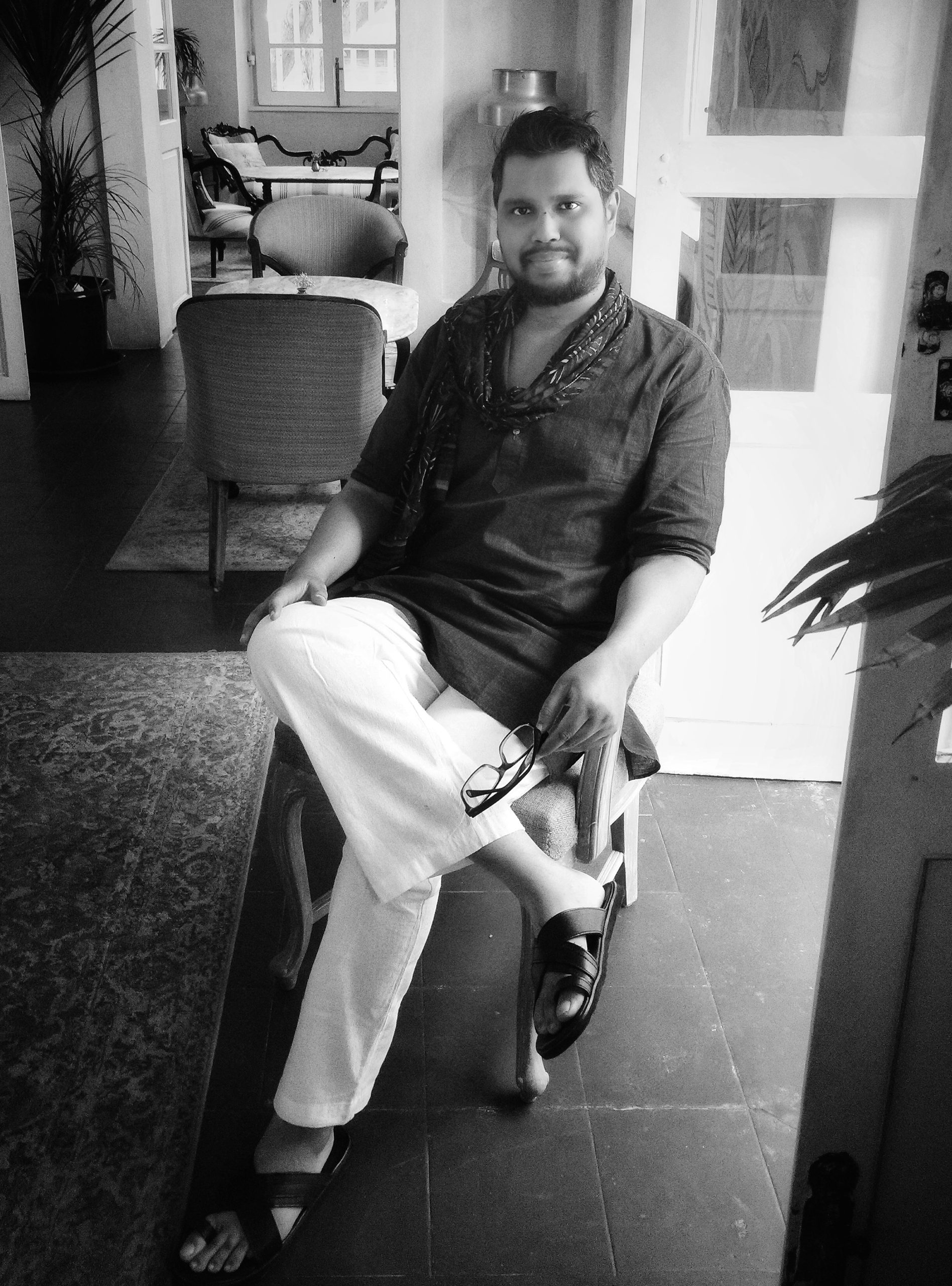Bombay will drown within a century, overcome
by the desires of the sea. In the staccato drama
of conversation, the flood has already arisen.
A city sleeps, in moving images, the deluge thrums.
You went foraging for pure kathie within Colaba’s
curved arches and inherited regrets. You tried
dancing to jazz within the cool sapphire rush
of a bar hounded by Arabian waves. You fled
goons with singular names and riots stoked by
the acrobatics of language; you poured terrorists
and evangelists into vats of acid, leaving them
nothing but the occasional strange whiff. You
thought you’d find Love in the arms of a wet
Bollywood dream— a cameo, or the few lines
to a song—or an ending, with titles, credits,
and everything. And it’s in these dramas—
in Ballard romancing twilight and its art deco
sadnesses; in the earth and Prithvi and everything
in between; in Haji Ali arising out of dawn
and sermons cast in Friday’s stone; in names
and rivers and shanties and the towering shadows
of want and hope; in the junoon that grips a human
and screams at him to be loved, to be alive;
in the adamant faith that the silver screen,
telegrams from an ocean, aasmaan, belligerent
jazz, beautiful skin, and opulent ghazal have all
conspired to script your perfect cinema
masterpiece—it’s in each of these things that
it becomes clear why Bombay will never
drown… It has too much weight, don’t you see,
and weight weighs almost as much as belief.
The City Wild

Siddharth Dasgupta writes poetry and fiction from lost hometowns, cafés dappled in early morning light, and cities inflicted with an existential throb. His fourth book—A Moveable East—has arrived in March ’21 via the independent publisher Red River. Siddharth’s literature has appeared in Epiphany, Lunch Ticket, The Bosphorus Review, The Aleph Review, Kyoto Journal, and elsewhere. He lives in the Indian city of Poona, embraced by an always fickle muse. You’ll find the author on Instagram @citizen.bliss and https://citizenbliss.squarespace.com

